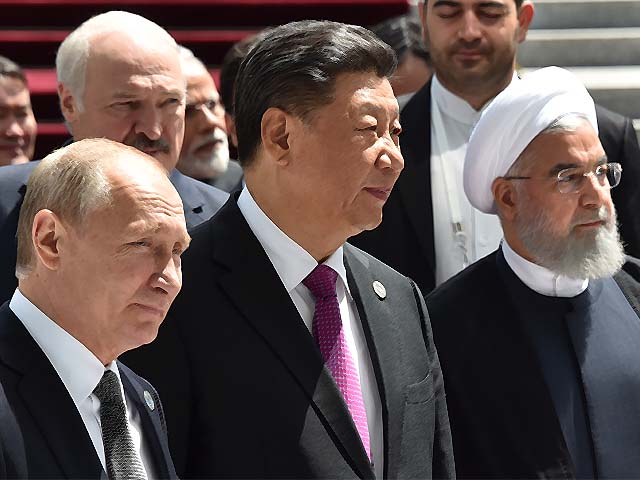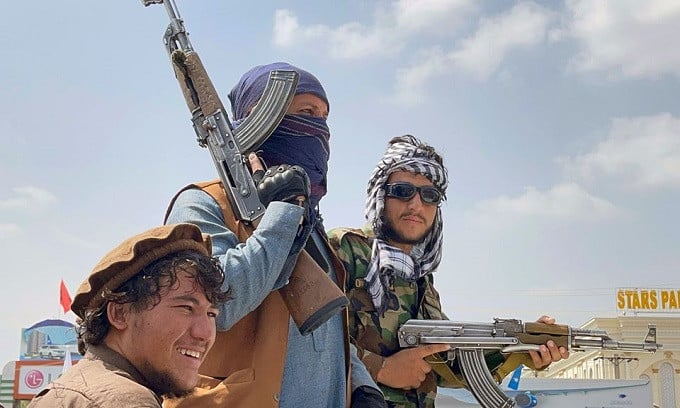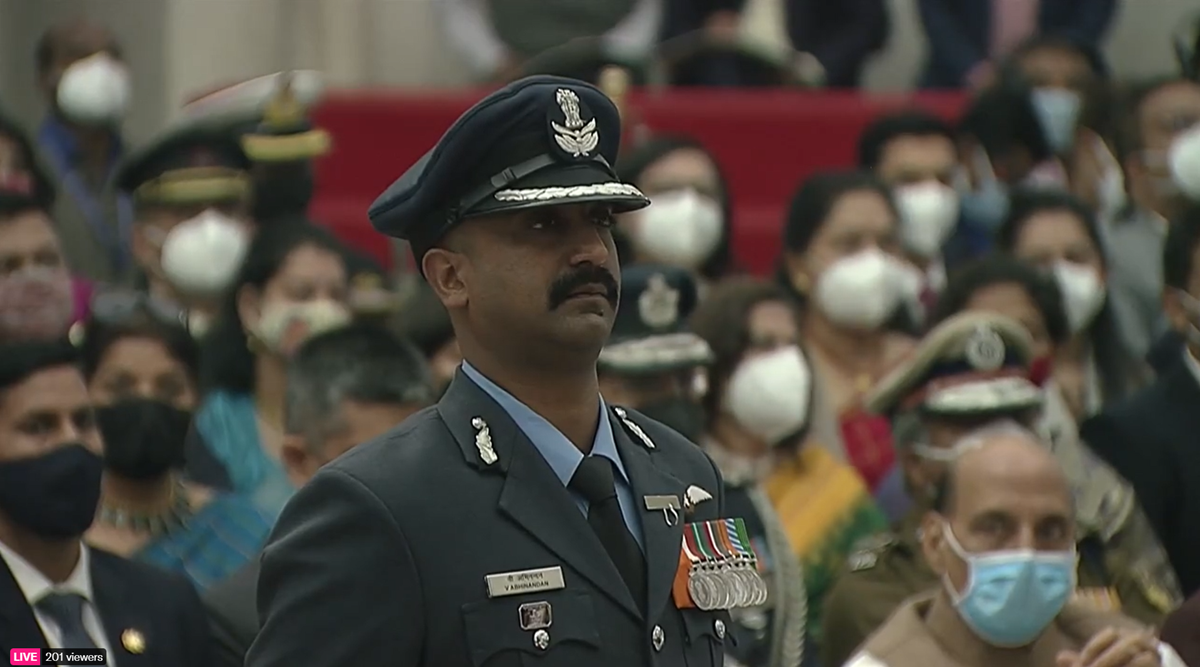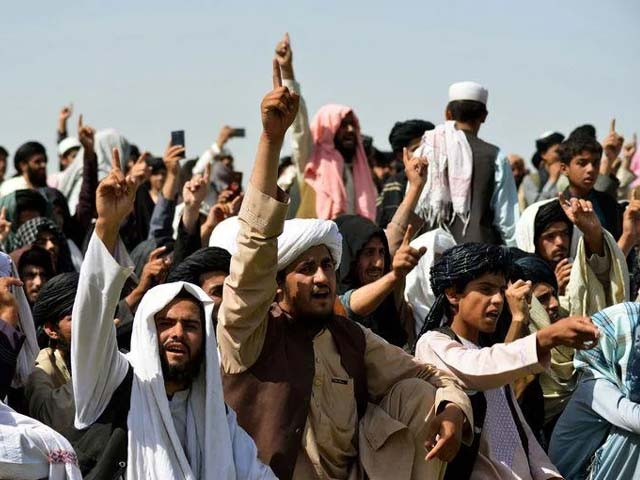
India and Russia are responsible for pushing Iran into China’s arms
The Chinese-Iranian strategic partnership
There’s been a lot of speculation about the details of the strategic partnership that China and Iran are reportedly on the brink of publicly unveiling in the coming future. Western mainstream media even alleges that the contents include a military component enabling the People’s Republic to base some of its troops in the Mideast country, though that scandalous tidbit of information is likely false seeing as how neither party has any interest in that. Iran doesn’t want to host foreign forces, and China doesn’t want to get involved in defending it.
A geopolitical surprise
In any case, there’s likely a great deal of truth to the claims that China will invest an enormous sum of money into the Islamic Republic, even if it isn’t the several hundred billion dollars that some reports have speculated. Beijing realises what an economically destitute position Tehran is in at the moment and that its partner is eager for a reliable creditor to inject a large amount of money into its infrastructure. This might prospectively include investments in the energy, industrial, commercial, and transportation spheres.
What’s so surprising about all of this is that many commentators had wrongly assumed that Iran was firmly within the joint “sphere of influence” between India and Russia, which would therefore make Chinese investments redundant. Iran was envisioned to play a key transit role in their much-touted North-South Transport Corridor (NSTC), which was marketed by both of them as a breakthrough in advancing their supposedly shared goal of Eurasian connectivity.
Neutralising the NSTC
In reality, however, it was only Russia that had any serious interest in seeing that happen, and even then, its interest was conditional on India reciprocating it through tangible investments. Iran had of course placed much hope in the NSTC, but it didn’t properly assess the strategic motivations of its two main partners in this initiative and instead naively believed that they’d do anything to see the project reach fruition since it was inaccurately thought to be indispensable to both of them.
It’s true that Russia wanted to see the NSTC enter into operation in a meaningful enough way to justify its expenditures and the related political cost of saving Iran from the US’ plot to “isolate” it, but India never harbored any such intentions since it only wanted to drive a wedge between Iran and Pakistan so as to keep the two neighbors perpetually at odds with one another per the basics of “divide-and-rule” strategy. For as much as India hyped up the NSTC and especially its Chabahar component, it never invested any serious skin in the game.
The “Trans-Arabian corridor”
That’s because it also never truly intended to risk the ire of its new American, “Israeli”, and GCC allies whose investments are much more important to the Indian economy than any preferential commercial transit rights through Iran. New Delhi also never cared all that much about using the Islamic Republic as a transit route for reaching the Russian marketplace and the European one further afield since it realised that it could more easily connect with the latter one through a new initiative tentatively called the “Trans-Arabian Corridor”.
Russian publicly financed international media outlet Sputnik reported last December that former “Israeli” Foreign and Intelligence Minister Katz invited Indian External Affairs Minister Jaishankar to join this project during a conversation that they held on the sidelines of the Mediterranean Dialogues forum that month. It makes perfect economic and strategic sense for India to more directly connect to the EU marketplace via its GCC and “Israeli” allies than to go through Iran and Russia en route to Europe and risk “secondary sanctions”.
Iran’s problem with Russia
Iran eventually wised up to India’s game and instead naturally sought out China to replace the South Asian state as the main focus of its economic future, but this doesn’t explain why it didn’t simply request for Russia to entirely fill the void left by India’s gradual economic disengagement from the Islamic Republic. Not only does Russia lack the requisite funds and commercial interest in shouldering the entire investment burden upon itself, but Iran feared becoming overly dependent on Moscow, which it increasingly distrusts.
It’s an objectively existing and easily verifiable fact that “Israel” coordinates all of its airstrikes in Syria against the IRGC and Hezbollah with Russia per the “deconfliction mechanism” that they agreed to in September 2015 just a week prior to Moscow’s anti-terrorist intervention in the Arab Republic. Contrary to the massive amount of fake news spread by many “wishful thinkers” and actual propagandists alike in the Alt-Media Community, Russia never considered Iran to be its “ally” even in Syria, which its tacit support of “Israeli” strikes attests to.
Russia’s “balancing” act
That’s not to say that Russia ever regarded Iran as its “enemy”, but just that the basics of Moscow’s “balancing” act in the Mideast are for it to never decisively take one state-level actor’s side against the other, instead preferring to sit back and let events unfold on their own while repeating diplomatic platitudes about peace. Suffice to say, this greatly disappointed those geostrategists in Iran who sincerely believed that Russia would actively support them on all fronts in order to accelerate the fulfillment of its “Greater Eurasia” vision.
There was never any credible basis to believe such a thing since the facts testified from the very beginning that Russia never had any interest in supporting Iran over “Israel”. If anything, the reality is closer to the reverse whereby Russia seems to value its strategic partnership with “Israel” much more than its relations with Iran to the point where the former is its de-facto “ally” in the region. In any case, some economically influential Russians (“oligarchs”) might have still thought that they could “buy Iran on the cheap” at the right time.
The China factor
China also has extremely close relations with “Israel” and Iran’s hated GCC foes, but there was never any serious influence campaign undertaken by any forces to convince Iran that it had an “anti-Zionist” agenda like many in the Alt-Media Community wrongly presented Russia as having for whatever their reasons may be for doing this. As a result, Iran always had a much more realistic understanding of Chinese intentions than it did when it came to Indian and Russian ones, which it wrongly believed for some time were similar to its own goals.
This made it all the easier for Iran to quickly revert to China as its preferred partner anywhere in the world upon its strategists realising just how wrong they were about India and Russia. The NSTC seems in hindsight to have been nothing more than a dream that was peddled mostly by India to Iran and Russia in order to convince them that its much closer ties with the US in recent years were part of its policy of so-called “multi-alignment” instead of the geostrategic pivot that they truly were this entire time and which few figured out beforehand.
Who really needed the NSTC?
Russia doesn’t need the NSTC since it can even more easily pioneer a parallel economic corridor to Pakistan via post-war Afghanistan (“N-CPEC+”/”RuPak”) because most of the infrastructure is already in place except notably in Afghanistan itself whereas it would have had to invest more heavily in Iran to do the same thing. It would have still liked to see NSTC enter into reality, but it didn’t proverbially “put all its eggs in one basket” over this project like Iran did. India, as was explained, always really wanted the TAC and only used the NSTC as a ruse.
In other words, India manipulated Russia, and especially Iran, into thinking that it was serious about the NSTC when it never intended to pursue the project if doing so would endanger its prospects of utilising the TAC too. Essentially forced to choose between the two, India naturally followed its interests by picking the TAC over the NSTC long before “Israel” officially invited it to participate. Russia realised the game early on, which partially explains why it prioritised relations with Pakistan in recent years, though it took Iran a while to figure this out.
Concluding thoughts
As a result of these dynamics, one can conclude that India and Russia pushed Iran into China’s arms, though neither of them mind all that much since Iran was never as indispensable to their respective geostrategic goals as they were to its own. Iran is therefore determining the details of its strategic partnership with China from a position of relative weakness and even desperation, though China isn’t likely to exploit this since it stands to gain more by treating Iran better than its other two partners did in order to set a positive example about BRI.




COMMENTS (9)
Fantastic article. Exactly what I've thought. Keep up the good work Andrew. Your articles are astute and enlightening for the reader.
A very articulate article. It gives real insight of the geo political situation that the Asian region faces now. China is considered a trusted partner by most because of its non interference policy and the help it extends without setting crippling conditions. America is losing its allies one after the other in the region.
We seem to be forgetting Trump whose sanctions forced Iran to seek China's help.
We seem to be missing the elephant in the room - USA. After all if it wasn't for Trump's need for Jewish money and total disregard for international laws and treaties, Iran would not be looking for help from anyone.
Though India was proponent of NSTC, but its underlining game was to create wedge between Iran and Pakistan as rightly pointed out by the author. During all this time India used Iranian soil for espionage and sabotage activities in Baluchistan. Spy master Kalbhushan Singh is now in the custody of Pakistan.Realising the ground reality we hope Iran shall weed out all such anti Pakistan elements planted by India in Chah Bahar and its Wastern part of Baluchistan. Iran owes a lot to Pakistan to ameliorate the effects of its playing proxy to India to be able to reap the benefits of OBOR.
Iran left with no choice but to go to china . Chinese had in fact good history of keeping bilateral relations and not like America Russia or india who always wants to serve their purpose only. Iran was playing very badly in the hands of indians and they spoiled lot of sympathies from general pakistanis now hardly any pakistani can ever trust iran. But due to china factor definately pakistanis will accept iran with lot of mis trust
China and Iran are not compatible in any sense. They are poles apart on everything. While India and Iran are almost same. We have civilizational relations with Iran. Iran-China and Pakistan-China relations may be treated as "forced marriages"!
And I thought it was Trump! Duh.
Interesting angle of the new development between China and Iran.
Comments are moderated and generally will be posted if they are on-topic and not abusive.
For more information, please see our Comments FAQ